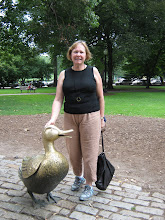World Thinking Day is a day of friendship, advocacy and fundraising for 10 million Girl Guides and Girl Scouts around the world. It may well have been started by Girl Guides but what a great day to plan activities that really require children to think deeply or differently or to look at some pioneering thinkers. Locate and share some biographies about people whose thinking 'did break the mould' like Copernicus (whose birthday it was on the 19th February), Leonardo da Vinci, Rosa Parks, Lodner Williams, William Kamkwamba, Elizabeth Blackwell or Margaret E. Knight.
Try Nicolaus Copernicus, The Earth is a Planet. This is the story of noted scientist and astronomer Nicholaus Copernicus, who, with his extensive research and controversial writings, ultimately challenged the way people viewed the Universe for ages. Born in the year 1473 in Poland, Copernicus was interested in science from a young age. He especially liked looking at the stars, and his favourite subject while attending school was astronomy. But Copernicus disagreed with what he was taught as a student. His teachers claimed that the Earth remained stationary while the heavenly bodies circled it. Copernicus believed that the Earth moved and spun on it's own. It took him over 30 years to finally publish a book on his findings, and then it took many more years after that for people to accept his views as fact.

Read The Boy Who Harnessed the Wind. This is the story of fourteen-year-old William Kamkwamba. His Malawi village was hit by a drought and everyone's crops began to fail. Without enough money for food, let alone school, William spent his days in the library . . . and figured out how to bring electricity to his village. Persevering against the odds, William had a great idea and built a functioning windmill out of junkyard scraps.
Read Who Says Women Can't Be Doctors? by Tanya Lee Stone. This is the story of Elizabeth Blackwell. In the 1830s, when she was growing up women were supposed to be wives and mothers and maybe teachers or seamstresses, but their career options were few. No women were doctors. Elizabeth refused to believe women were not smart enough or strong enough to be doctors. Although she faced much opposition she finally graduated from medical school and went on to have a brilliant career, proving her detractors wrong and paving the way for future women.
Or read the amazing story of the first Girl Scouts and their visionary founder, Juliette Daisy Gordon Low, Daisy to her friends and family in the picture book biography Here Come the Girl Scouts! by Shana Corey. She was not like most girls of the Victorian era. She loved the outdoors, and she yearned for adventure! Born into a family of pathfinders and pioneers, she too wanted to make a difference in the world. On a trip to England she was introduced to the Boy Scouts and Girl Guides and then combining her ancestors' passion for service with her own adventurous spirit and her belief that girls could do anything, she founded the Girl Scouts in America.


No comments:
Post a Comment